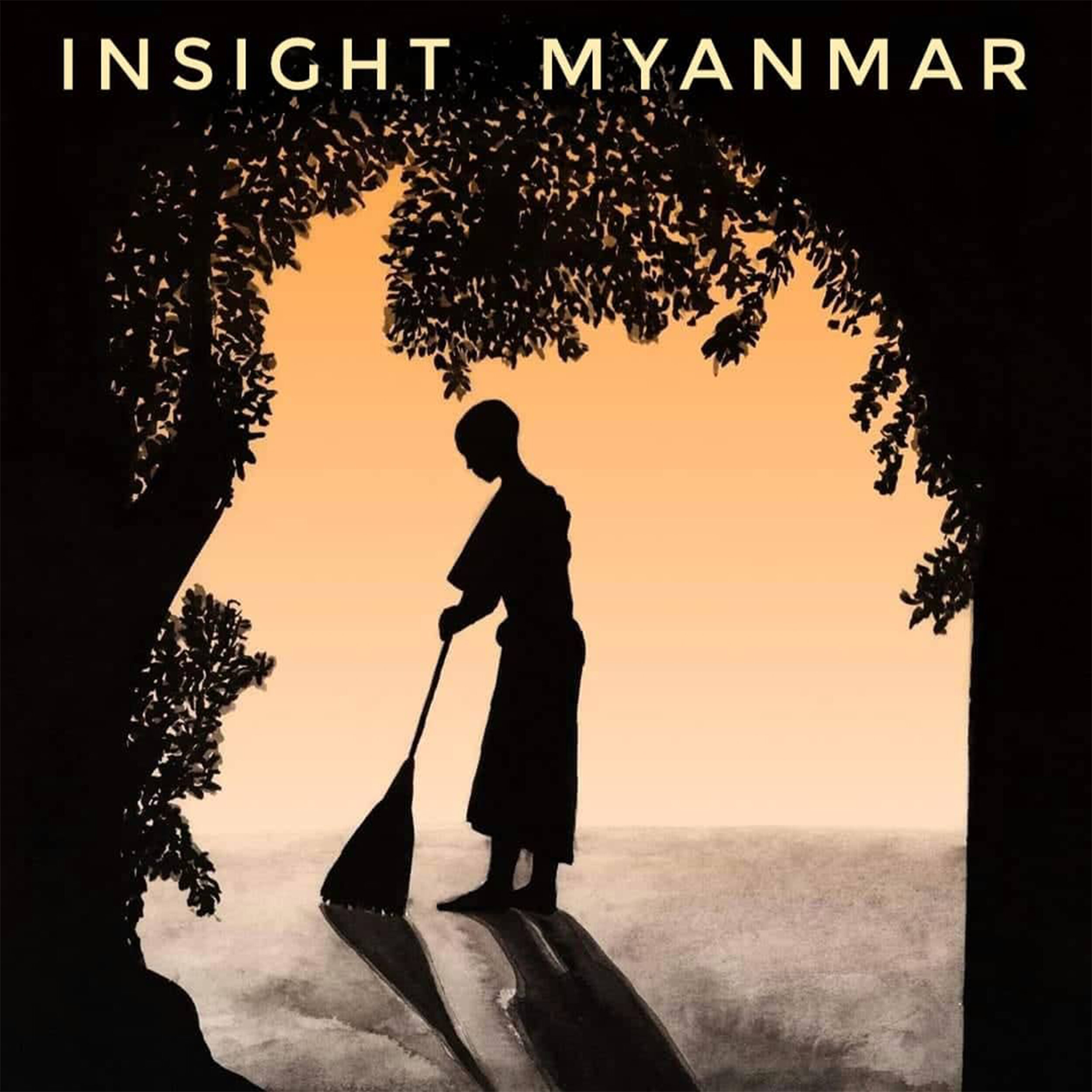Lessons from the Golden Land
Emanuel Flores is a vipassana meditator in the tradition of S.N. Goenka who visited Burma in 2019, and became a monk. He describes part of his story here:
“It made me much more detached from material things, enabling me to have more time to spend on the practice of developing good qualities, and to be more balanced when difficulties arise.”
“The idea of going to Burma was sparked when I met my uncle at his house in Rio, and he showed photos of Shwedagon and invited me to visit him there. He was then the Brazilian Ambassador in the country. I arrived in Myanmar in October of 2019. The idea was spending 6 months doing a solo pilgrimage to the sacred places of Goenkaji's tradition and also serving and sitting meditation courses in centers. But close to the date of the flight, I realized that meditation centers would not sponsor me and give me the documents necessary for issuing the meditation visa.
Luckily, I was put in contact with a Burmese woman who ended up introducing me to the bhikkhu who would become my preceptor and teacher during the next year: Ven. Pannyardhikalankara, a professor at Mahavihara University and founder of Pannyaryaungchi Buddhist Education Center.
By the way, this small kyaung was where I lived during my lovely time in Burma. At my arrival there were 3 monks, including my teacher and 4 novices, including myself. As you can imagine, I had a great opportunity living so close to the teacher, having conversations, asking questions and learning by watching his behavior.
In the beginning, my focus was only meditation; I didn't even want to learn Burmese (to avoid talking and thinking). Later on, however, with encouragement from my uncle and his wife who were living nearby, I started studying the language and eventually got to the point where I could participate in abhidhamma (sangaha) classes for the novices! That was beautiful, too, for the keenness I saw in them regarding their study, something I had never seen before.
But Covid came, and with that, food choice was drastically reduced and I ended up losing a lot of weight. Since I was already thin, the situation started becoming dangerous to my health and I saw myself having to make a move. Then the coup came a while later, as you might remember, and made everything even more tense and uncertain.
But I was so attached to the monastic life that I didn't want to disrobe. I thought about going to Sri Lanka or Thailand but since there were many restrictions at the time, and I didn’t know if I was going to adapt well. So I ended up returning to Brazil as a monk, and sought shelter in the only Theravadin monastery of the country, Suddhavari, of the Thai Forest Tradition.
So, I decided to give up the monastic vows at that very monastery and returned to lay life. Going back to lay life was a big shock, but I found solace returning to the meditation center where I had first gotten Dhamma, and I stayed there for a year as center manager.
After that, I returned to Brazil and to Rio, my hometown, and I'm now living and caring of my 93-year old grandmother. Actually, we take care of each other. I'm also doing a course on caregiving.
Although I was not able to maintain my monastic vows and way of life, having this experience enriched my life so much. It made me much more detached from material things, enabling me to have more time to spend on the practice of developing good qualities, and to be more balanced when difficulties arise. “When you need hot, you’ll get cold, and when you need cold, you’ll get hot,” my teacher said shortly after my ordination. In lay life it's just the same.
I hope to return to Southeast Asia soon. The selflessness, the balance, the joy, the love and the mindfulness of the Burmese people made a huge impression on me, and I feel I still have so much to learn from our brothers and sister of the other side of the globe."
